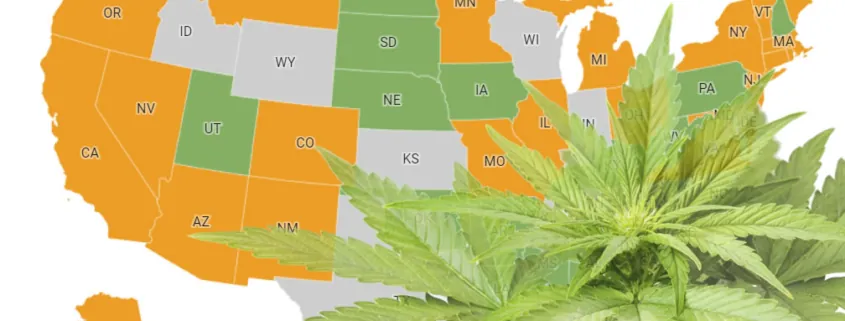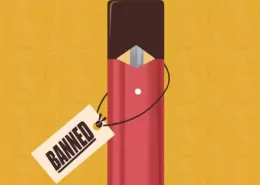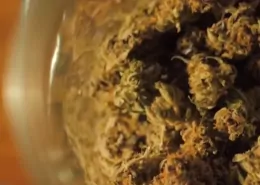Where marijuana is legal in the United States
The United States has witnessed a significant shift in attitudes and policies surrounding marijuana in recent years. As of 2024, twenty-four states, along with Washington, D.C., and Guam, have legalized recreational marijuana use. This article delves into the history of marijuana legalization, the current legal landscape, and the ongoing debates surrounding this controversial topic.
The Road to Legalization
Pioneering States
In 2012, Colorado and Washington became the first states to legalize recreational marijuana use and sale through ballot measures. This groundbreaking move paved the way for other states to follow suit in the subsequent years.
Rapid Expansion
Between 2012 and 2023, an additional twenty-one states, Washington, D.C., and Guam acted to legalize recreational marijuana. This rapid expansion occurred despite marijuana remaining illegal at the federal level, reflecting a significant shift in public opinion and political will.
State-by-State Legalization and Regulations
Here is a comprehensive overview of the states that have legalized recreational marijuana, including:
| State/Territory | Legal Status | Age Limit | Approved | Possession Limit | Cultivation Limit | Retail Sales | Tax Policy |
|---|---|---|---|---|---|---|---|
| Alabama | Illegal | N/A | N/A | N/A | N/A | N/A | N/A |
| Alaska | Legal | 21+ | Nov 2014 | Up to 1 oz | 6 plants (max 3 mature) | Licensed sales allowed | Excise tax on cultivators |
| Arizona | Legal | 21+ | Nov 2020 | Not specified | Limited cultivation allowed | Licensed sales allowed | Not specified |
| Arkansas | Illegal | N/A | N/A | N/A | N/A | N/A | N/A |
| California | Legal | 21+ | Nov 2016 | 1 oz flower, 8g concentrate | 6 plants | Licensed sales allowed | Standard sales tax + 15% excise + local tax |
| Colorado | Legal | 21+ | Nov 2012 | Up to 1 oz | 6 plants per person, max 12 per household | Licensed sales allowed | Standard sales tax + 10% marijuana tax + 15% wholesale excise tax |
| Connecticut | Legal | 21+ | Jun 2021 | 1.5 oz person, 5 oz home/vehicle | Not specified | Started Jan 2023 | Not specified |
| Delaware | Legal | 21+ | Apr 2023 | Up to 1 oz | No home growing allowed | Planning 30 retail licenses | Not specified |
| District of Columbia | Legal | 21+ | Nov 2014 | Up to 2 oz | 6 plants (max 3 mature) | No retail sales (gifting only) | N/A |
| Florida | Illegal | N/A | N/A | N/A | N/A | N/A | N/A |
| Georgia | Illegal | N/A | N/A | N/A | N/A | N/A | N/A |
| Guam | Legal | 21+ | Apr 2019 | Up to 1 oz | 6 plants (max 3 mature) | Being established | Not specified |
| Hawaii | Illegal | N/A | N/A | N/A | N/A | N/A | N/A |
| Idaho | Illegal | N/A | N/A | N/A | N/A | N/A | N/A |
| Illinois | Legal | 21+ | May 2019 | Residents: 30g flower, 5g concentrate, 500mg THC | Not specified | Licensed sales allowed | 25% tax >35% THC, 10% <35% THC, 20% edibles + up to 3% local |
| Indiana | Illegal | N/A | N/A | N/A | N/A | N/A | N/A |
| Iowa | Illegal | N/A | N/A | N/A | N/A | N/A | N/A |
| Kansas | Illegal | N/A | N/A | N/A | N/A | N/A | N/A |
| Kentucky | Illegal | N/A | N/A | N/A | N/A | N/A | N/A |
| Louisiana | Illegal | N/A | N/A | N/A | N/A | N/A | N/A |
| Maine | Legal | 21+ | Nov 2016 | Up to 2.5 oz | 6 flowering + 12 immature plants | Licensed sales allowed | 15% excise + 10% sales tax |
| Maryland | Legal | 21+ | Nov 2022 | Up to 1.5 oz | Not specified | Started Jul 2023 | Not specified |
| Massachusetts | Legal | 21+ | Nov 2016 | 1 oz person, 10 oz home | 6 per person, max 12 per household | Licensed sales allowed | Standard sales tax + 10.75% excise + up to 3% local |
| Michigan | Legal | 21+ | Nov 2018 | 2.5 oz, 15g concentrate | 12 plants per household | Licensed sales allowed | Not specified |
| Minnesota | Legal | 21+ | May 2023 | Not specified | Not specified | Expected Q1 2025 | 10% tax |
| Mississippi | Illegal | N/A | N/A | N/A | N/A | N/A | N/A |
| Missouri | Legal | 21+ | Nov 2022 | Up to 3 oz | Registration card required | Started Feb 2023 | 6% retail tax |
| Montana | Legal | 21+ | Nov 2020 | Not specified | Not specified | Licensed sales allowed | Not specified |
| Nebraska | Illegal | N/A | N/A | N/A | N/A | N/A | N/A |
| Nevada | Legal | 21+ | Nov 2016 | 1 oz flower, 1/8 oz concentrate | 6 plants per person, max 12 per household | Licensed sales allowed | Standard sales tax + 10% excise |
| New Hampshire | Illegal | N/A | N/A | N/A | N/A | N/A | N/A |
| New Jersey | Legal | 21+ | Nov 2020 | Not specified | Not specified | Licensed sales allowed | State + local taxes |
| New Mexico | Legal | 21+ | Apr 2021 | Up to 2 oz | 6 plants per person, max 12 per household | Started Apr 2022 | Not specified |
| New York | Legal | 21+ | Mar 2021 | Up to 3 oz | Not specified | Started Dec 2022 | Not specified |
| North Carolina | Illegal | N/A | N/A | N/A | N/A | N/A | N/A |
| North Dakota | Illegal | N/A | N/A | N/A | N/A | N/A | N/A |
| Ohio | Legal | 21+ | Nov 2023 | Up to 2.5 oz | Home growing allowed | Being established | 10% tax |
| Oklahoma | Illegal | N/A | N/A | N/A | N/A | N/A | N/A |
| Oregon | Legal | 21+ | Nov 2014 | 1 oz public, 8 oz home; 16 oz solid, 72 oz liquid | 4 plants per household | Licensed sales allowed | 17% state + up to 3% local tax |
| Pennsylvania | Illegal | N/A | N/A | N/A | N/A | N/A | N/A |
| Puerto Rico | Illegal | N/A | N/A | N/A | N/A | N/A | N/A |
| Rhode Island | Legal | 21+ | May 2022 | Up to 1 oz | 3 plants per household | Started Dec 2022 | Not specified |
| South Carolina | Illegal | N/A | N/A | N/A | N/A | N/A | N/A |
| South Dakota | Illegal | N/A | N/A | N/A | N/A | N/A | N/A |
| Tennessee | Illegal | N/A | N/A | N/A | N/A | N/A | N/A |
| Texas | Illegal | N/A | N/A | N/A | N/A | N/A | N/A |
| U.S. Virgin Islands | Illegal | N/A | N/A | N/A | N/A | N/A | N/A |
| Utah | Illegal | N/A | N/A | N/A | N/A | N/A | N/A |
| Vermont | Legal | 21+ | Jan 2018 | Up to 1 oz | 2 mature + 4 immature per household | Started Oct 2022 | Not specified |
| Virginia | Legal | 21+ | Apr 2021 | Up to 1 oz | 4 plants per household | Framework pending | Not specified |
| Washington | Legal | 21+ | Nov 2012 | 1 oz flower, 16 oz edibles, 72 oz liquid, 7g concentrate | No home growing | Licensed sales allowed | 37% excise tax |
| West Virginia | Illegal | N/A | N/A | N/A | N/A | N/A | N/A |
| Wisconsin | Illegal | N/A | N/A | N/A | N/A | N/A | N/A |
| Wyoming | Illegal | N/A | N/A | N/A | N/A | N/A | N/A |
For each state, the article outlines key aspects of their legalization measures, including possession limits, home cultivation rules, taxation, and the status of retail sales. It also highlights notable developments, such as gubernatorial pardons for marijuana-related offenses and ongoing efforts to establish regulated markets.
Federal Stance and Developments
Classification as a Schedule I Drug
Under the federal Controlled Substances Act, marijuana remains classified as a Schedule I drug, indicating a high potential for abuse and no recognized medical use. This classification creates tension between state and federal laws, as states that have legalized marijuana are in direct conflict with federal drug policy.
Cole Memorandum and its Rescission
In 2013, the Department of Justice issued the influential Cole Memorandum, which stated that the federal government would not challenge state legalization laws at that time. However, then-Attorney General Jeff Sessions rescinded the memo in 2018, creating uncertainty about federal enforcement priorities.
President Biden’s Proclamation and Potential Reclassification
In October 2022, President Joe Biden issued pardons to individuals convicted of the federal crime of simple marijuana possession, while also calling for a review of marijuana’s classification under federal law. As of April 2024, the U.S. Drug Enforcement Administration was reportedly poised to reclassify marijuana as a less dangerous Schedule III drug, pending final approval processes.
Decriminalization and Public Opinion
In addition to legalization efforts, many states have taken steps to decriminalize marijuana possession, reducing penalties and prioritizing public health approaches over criminalization. As of April 2024, 31 states and the District of Columbia have decriminalized low-level marijuana possession offenses.
Public opinion on marijuana legalization has shifted dramatically in recent decades. According to a 2021 Gallup poll, 68% of Americans support legalizing marijuana, a significant increase from just 12% in 1969. Support is highest among younger generations and Democrats, but a majority of Republicans now also favor legalization.
Conclusion
The landscape of marijuana legalization in the United States continues to evolve rapidly, with more states expected to consider legalization measures in the coming years. As public opinion shifts and the potential for federal reclassification looms, policymakers at all levels of government will need to grapple with the complex issues surrounding marijuana regulation, taxation, and social equity.
While the future of marijuana policy remains uncertain, one thing is clear: the debate over legalization is far from over, and the United States is likely to see further changes and developments in the years to come.
- How to Choose Safe CBD for Dogs Without Guesswork - August 4, 2025
- Texas Senate Passes Revised THC Ban Bill (SB 5) - August 4, 2025
- Best Delta-8 THC Carts of 2025: Top 5 Vapes Reviewed - July 16, 2025








